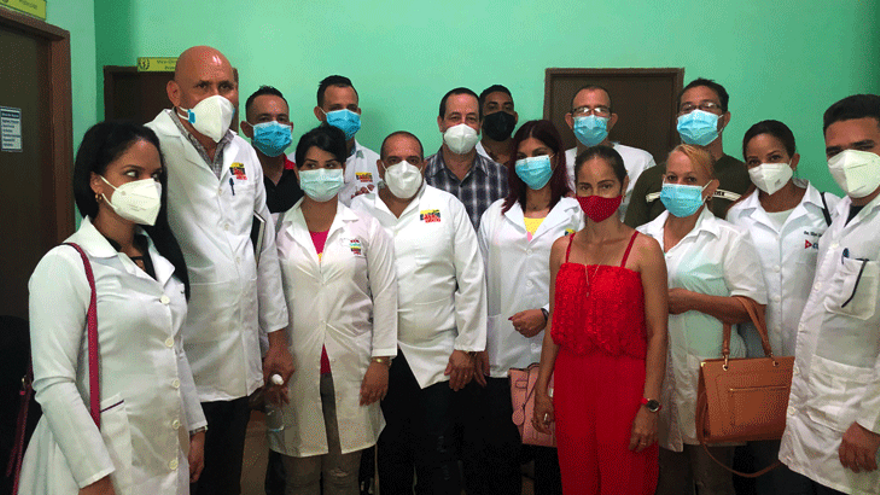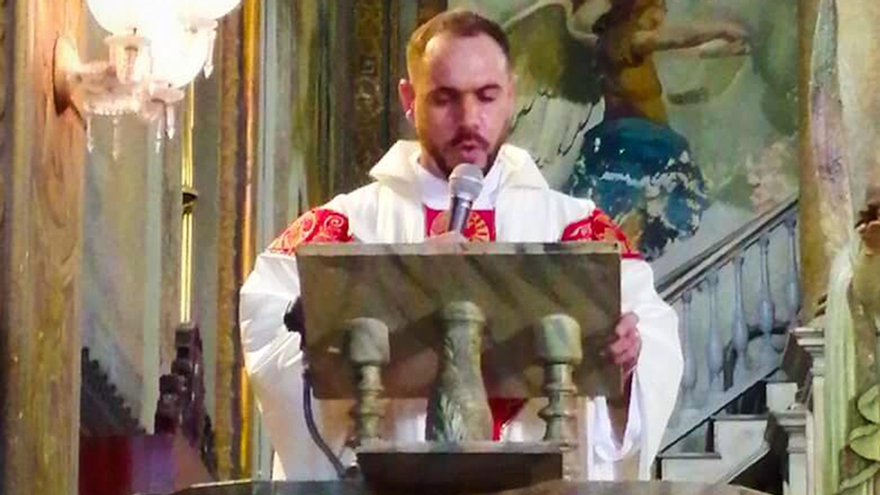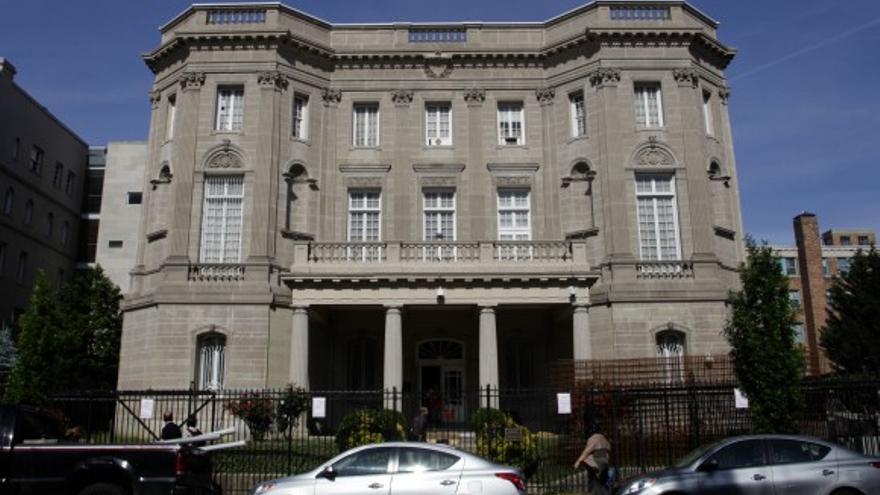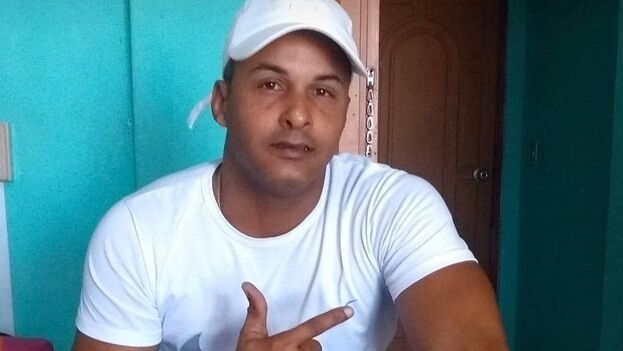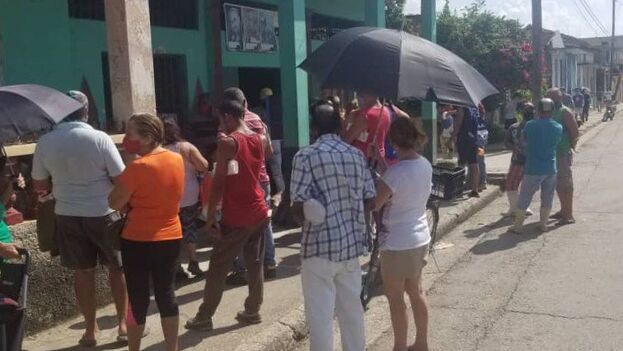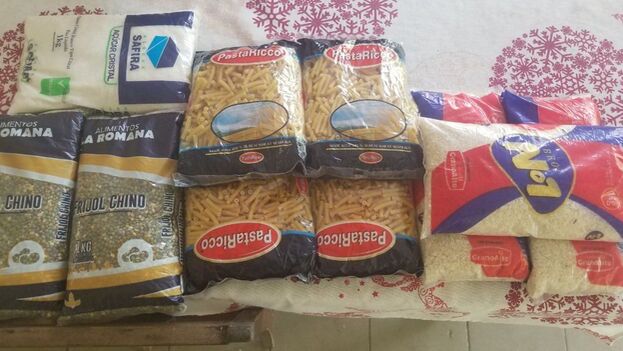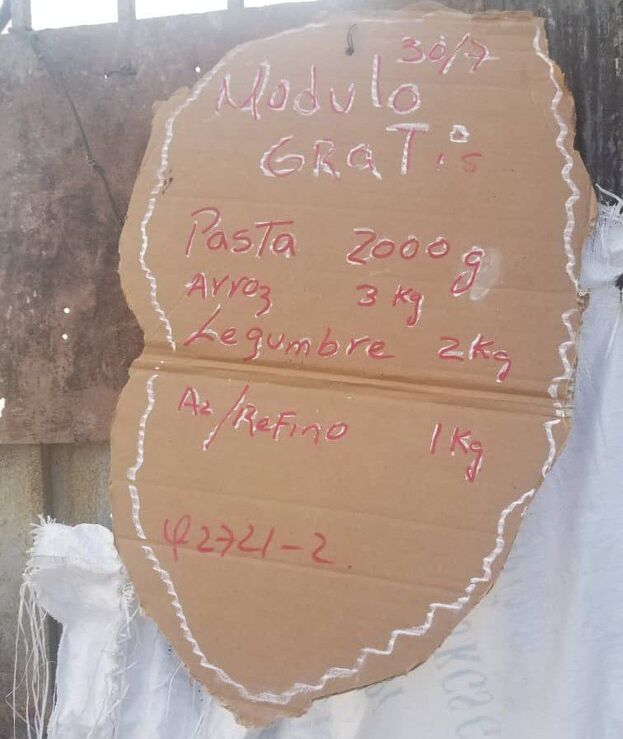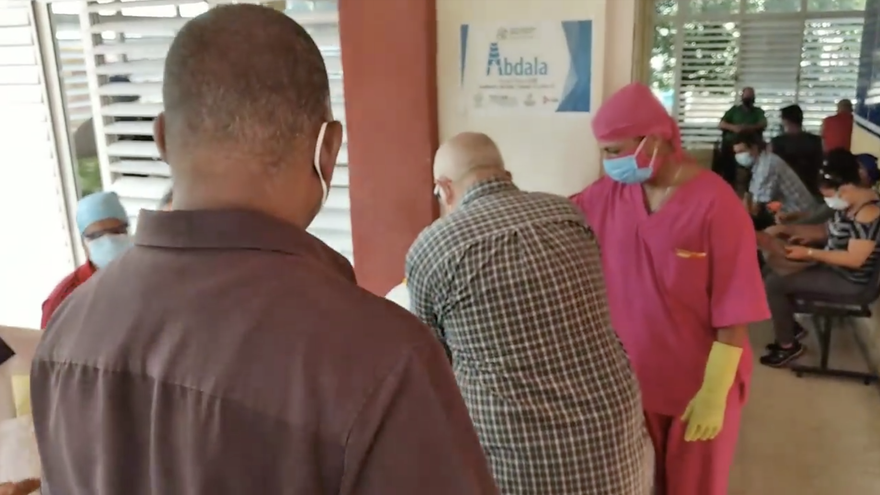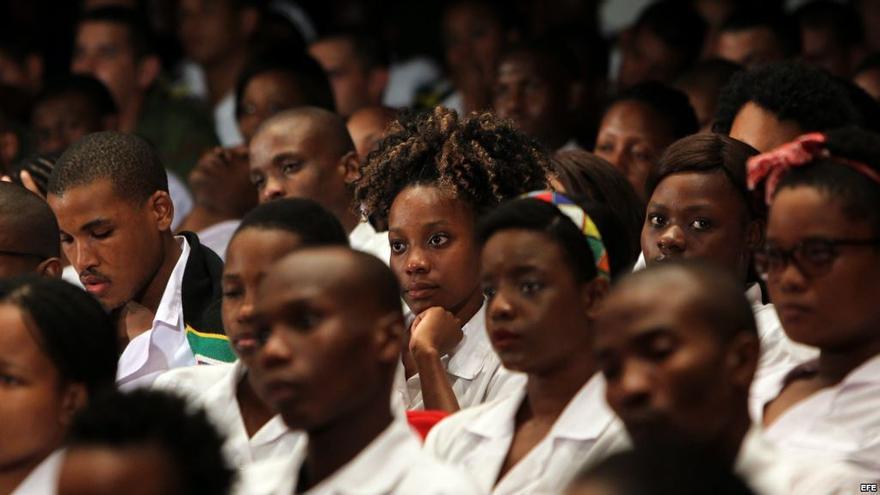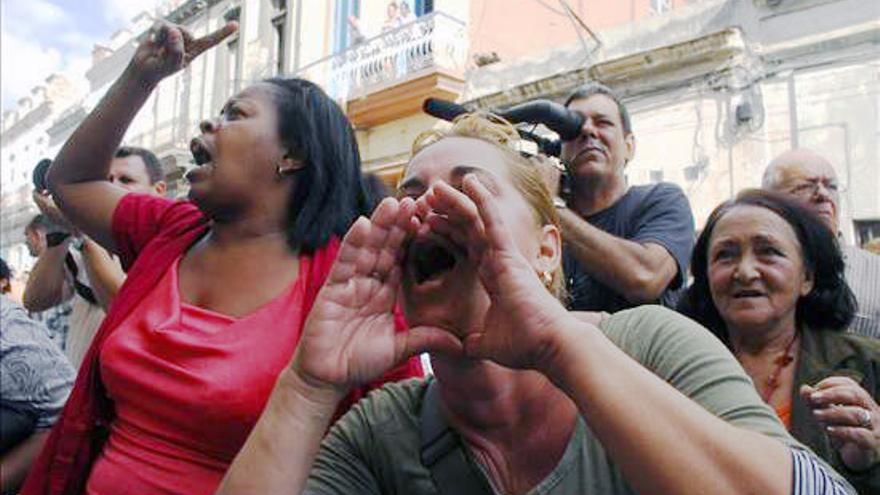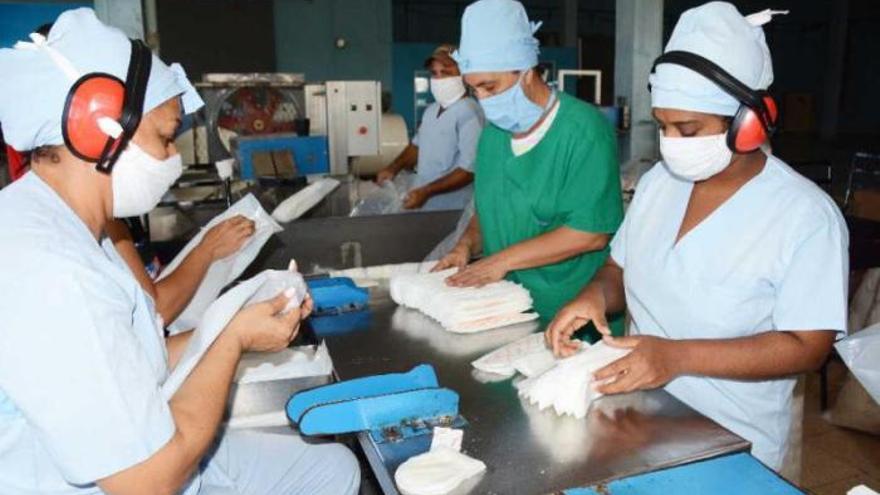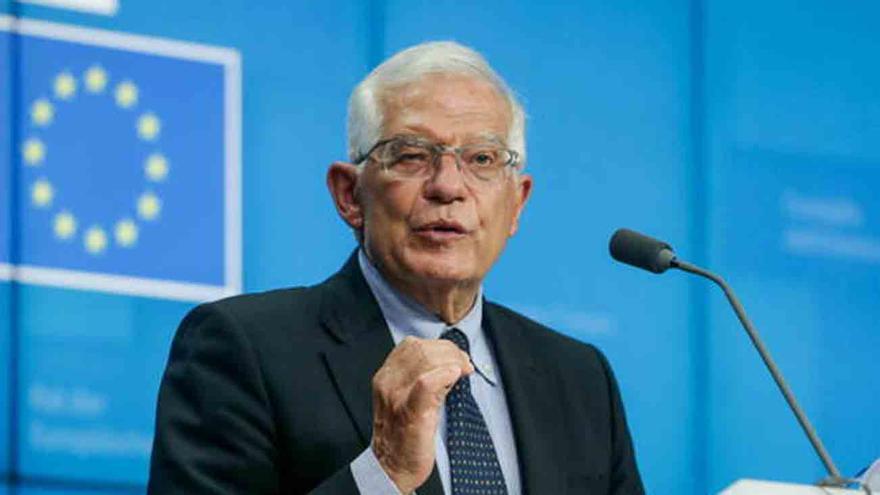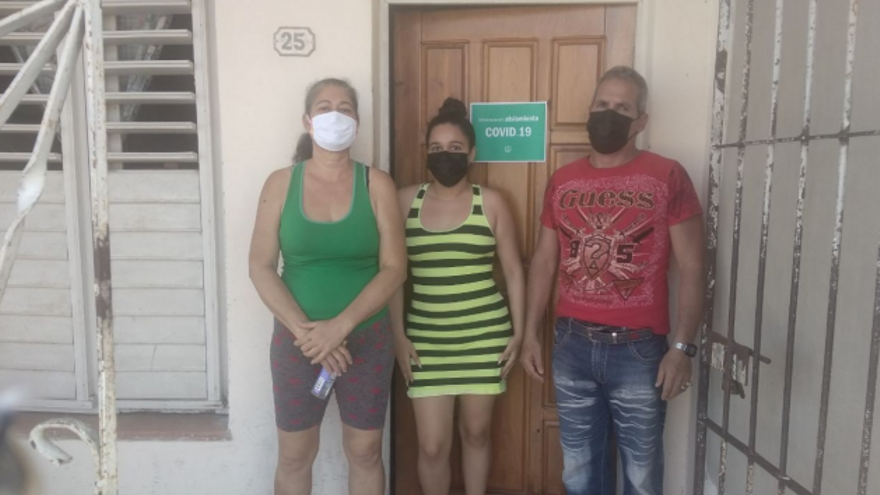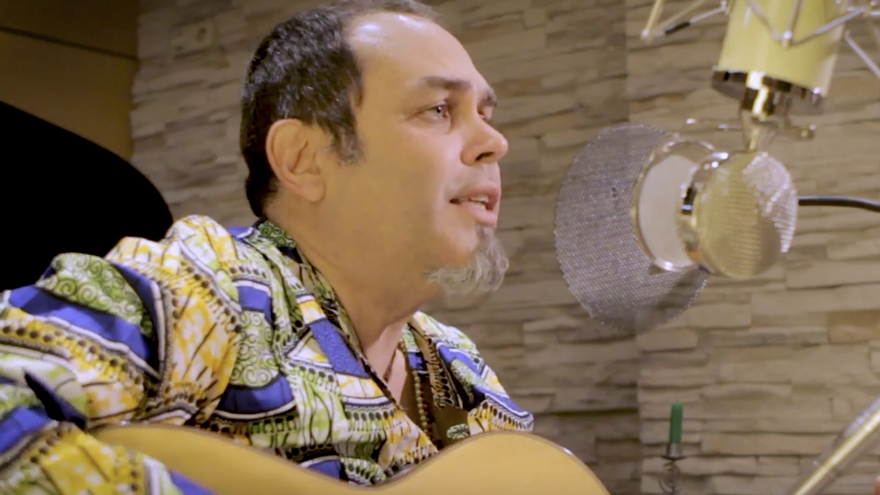This conversation reached his familial twists and turns unintentionally, because what 14ymedio wanted to talk about with Urkiza – a complete musician, founder of Gema and Pavel, the cult duo that put to music the harsh early 90s in Cuba with its opposites of the New Trova and the slogans – was his latest song release, Todo Por Ti (Everything for You), which he sings along with Daymé Arocena and which extols the historic July 11 demonstrations.
On July 12 I spoke with Eliécer Jiménez-Almeida, a tremendously talented brother, and we said “we have to do something.” I composed the song and decided to write to Daymé Arocena, who lives in Toronto now, and she answered me almost crying, very emotional. Her husband, Pablo Dewin, also a visual artist, filmed Daymé, and Eliécer did the editing. He had the idea of doing it in a square format, so that it would be easier to watch on cell phones. The mixing and mastering of the song was done by my Madrid brother Javier Monteverde in the studio where I worked when I lived in Spain. And that’s how the theme arose. On July 21st at 7 in the morning it was already launched on the social networks.
decided to reply to him on Facebook as well.
Yaiza Santos: If something exposes these reactions in the regime, it’s because the music has made them very nervous …
Pavel Urkiza: From Patria y Vida [Homeland and Life]. That was the first and it is an indisputable theme. It simply changed the motto, and showed that “homeland or death” has become obsolete and forgotten . . . Later many things have come out, but they seem to me rude, very aggressive — “Díaz-Canel singao” [motherfucker] and such. And the message that I want is another, more sophisticated one, you understand? In addition, Daymé Arocena right now is one of the Cuban artists with the most reach — young, with light, but she also comes from that place that Luis Manuel Otero Alcántara and Maykel Osorbo come from, persons of the people who will no longer give more. That’s also why it hurt them, because this song is on another level.
If you read Abel Prieto’s reasoning, everything is with questions. In my answer I say to him: “I find it curious that you — I am treating you as ’usted’ [using the formal ’you’ in Spanish] — question the song with questions. Do you doubt its arguments?” Yotuel Romero has been called “hustler” and “mercenary,” but Abel Prieto knows that he can’t say “mercenary” or “hustler” to me, because I know very well how the leaders in Cuba live. So I tell him: “I know that you go to Cimeq [the Surgical Medical Research Center], to the 43 clinic [the Kohly Clinic, only for high-ranking State officials] . . . I’ll tell you about things I know, because I come from a powerful family in Cuba, my mother’s family.”
My uncle replaced Che Guevara when he stepped down as Minister of Industry, my other uncle was head of Fidel Castro’s bodyguard at the beginning of the Revolution, my aunt was a colonel in the Ministry of the Interior . . . People I have nothing in common with and they stayed at my house in Cuba, anyway . . . Abel Prieto knew my grandmother well, the actress Raquel Revuelta, who became Vice Minister of Culture.
Yaiza Santos: Music is such an important factor in the change in Cuba, and nobody saw it coming.
Pavel Urkiza: As I said in my message to Abel Prieto, freedom also conquers with the cutting edge of ideas, and that is what the songs are doing.
Yaiza Santos: You’ve brought up your family history.
Pavel Urkiza: I come from privilege. My maternal family was from the old communists. My maternal grandmother, the one who raised me, was born in 1903 and did not baptize her children. And my grandfather, Fidel Domenech, who did not know the Revolution, was also an old communist [from the Communist Party of Cuba, founded in 1925]. Many of them were linked to the Revolution, but they came into conflict with the process, and there are many communists whom Fidel himself removed from political life.
Yaiza Santos: When did you become aware and how did you decide to say: “I don’t want this, I’m leaving Cuba”?
Pavel Urkiza: At 17 years old, when the Mariel thing happened, I had already begun to question many things. The acts of repudiation that were carried out in Cuba against those who wanted to leave . . . People died there, it was a fascist thing. But I didn’t know the world, I hadn’t gone out. The first time I left Cuba was in 1985, to Czechoslovakia. Later, when you enter university [he studied Industrial Economics in Havana], you begin to see another world, to have a more critical sense.
My own grandmother Raquel was a very critical person, and she had a great communist friend, with whom she had many conversations that I listened to. They said they were corrupt, that this was not socialism. In fact, in 1987 my grandmother directed a play, Public Opinion, written by a Romanian [Aurel Baranga], which was a complete questioning of the socialist system. She was a highly respected woman in Cuba and she could do it. When homosexuals were persecuted, she took many out of UMAP [the labor camps called Military Production Aid Units] and put them in her theater group. I owe a lot to her in the sense of looking at reality with a critical eye and with an artistic eye as well.
Yaiza Santos: What about the rest of your relatives, did you question them?
Pavel Urkiza: With my aunt the colonel, above all, that she raised me and that she was blind. One day I went out to the street naked and began to write on the wall “down with the dictatorship,” and my aunt, imagine this, followed after me, erasing what I had written . . . In the 80s I also began to read Milan Kundera, for example, covered with brown paper, hidden, and when perestroika came, they got out of hand. Those Novedades de Moscow and Sputnik magazines, which nobody was interested in because they were the same crap, continued to arrive in Cuba and with perestroika we began to read them and we began to understand, to question a pile of things and to realize that what we were experiencing was a total failure.
I also had an episode of repression. One day I went with the pianist Omar Sosa to a hotel to visit a musician who played, and the police arrived, put us in a patrol car and locked us in a cell. That’s nothing, of course. There are people who have suffered really deep, really harsh repression, like María Elena Cruz Varela. As I say, I’ve been privileged; I was gradually realizing through my friends, through people who were visiting their homes, seeing how they lived, and I began to really ask myself whether this revolution was a great sham. By ’92 I was already ’green’.
Yaiza Santos: In that year, you left for Spain — also thanks to your grandmother Raquel — not to return.
Pavel Urkiza: I went out with the group Teatro Estudio de Cuba, to the celebrations of the fifth centennial of the discovery of America. The theater group also helpd me a lot, because artists tend to be more critical of reality and have access to certain reading and other types of music, things that begin to open your mind to realize that you’re living in a bubble, deceived by a system that makes you believe that this is the best thing in the world. And I came to the Spain of ’92, which was great.
Yaiza Santos: What impression did the Spanish opinion of Cuba make on you at that time?
Pavel Urkiza: They were super defenders of the Revolution, and we somehow tried to make them see what the reality was like. In fact, I think that many began to see it differently, decided to travel to Cuba and realized that there really is something wrong there. Many were disappointed and others were not, among them great friends of mine. But that’s fine with me, everything is tolerable. That’s the great thing about a democracy: you can think what you want and so can I and we can debate and respect each other. All well and good, and the one more people vote for wins the election, that’s the way it is. As the U.S. Constitution says, “We the people,” we are the ones who tell the Government what to do, the Government doesn’t tell us.
Yaiza Santos: And why did you go to the United States?
Pavel Urkiza: Well, I married an American, a love story that didn’t work out in the end, but here I stayed. After living in Washington, I came to Miami because it has social capital and it has a good climate. It’s a place where we Cubans feel at home, and it is really a very cosmopolitan city. The world’s view of Miami is quite stigmatized: the mafia thing and all that is something that belongs to the past. In fact, in the city of Miami the Democrats win.
I think the United States in general is a stigmatized country. Even living in Spain you despise it a little. Because you grow up with that! When you start to live the experience, you say, “Wait, I have to think for myself.” And I believe that the United States has many virtues. It is a country of laws, there is greatness here.
And I’ll tell you something: I always had leftist tendencies, obviously, and when I was in Spain I already began to say that I was a humanist, but now I feel that I’m an anarchist-humanist-libertarian. The left has disappointed me a lot. There is a whole strategy there that has nothing to do with real desire to change for the good of the people. I already wrote a song about it in La Ruta de las almas (The Route of Souls) — Resurrection – which says “free me from everything I have learned, return me to the point of nothingness, to the total absence of accumulated life.” I’ve had to rebuild myself, but from my own vision, not from the one they put in me there.
Yaiza Santos: How do you see Cuba from now on, after July 11? Is change coming?
Pavel Urkiza: This has no turning back, it has no turning back. It may take another five years, but it will come about. People are not going to stay calm anymore. As that woman said in one of the videos of the protests, that she is also an old woman, do you think that this old woman is a criminal? This is how I will remember July 11 all my life: the moment when the people of Cuba took off the cloak of silence.
Translated by Tomás A.
____________
COLLABORATE WITH OUR WORK: The 14ymedio team is committed to practicing serious journalism that reflects Cuba’s reality in all its depth. Thank you for joining us on this long journey. We invite you to continue supporting us by becoming a member of 14ymedio now. Together we can continue transforming journalism in Cuba.

![]() 14ymedio, Havana, 4 August 2021 — Silvio Rodriguez believes the protests of July 11 mark a before and after point, not another chapter. “It’s something serious that causes us to reflect and, I hope, to take immediate action,” says the Cuban singer-songwriter speaking to the Spanish newspaper El País in an interview published on Tuesday. He makes it clear that he continues to support the revolution and does not dislike the single party system but says, “It must be very open, inclusive, ecumenical, even if it has strategic goals.”
14ymedio, Havana, 4 August 2021 — Silvio Rodriguez believes the protests of July 11 mark a before and after point, not another chapter. “It’s something serious that causes us to reflect and, I hope, to take immediate action,” says the Cuban singer-songwriter speaking to the Spanish newspaper El País in an interview published on Tuesday. He makes it clear that he continues to support the revolution and does not dislike the single party system but says, “It must be very open, inclusive, ecumenical, even if it has strategic goals.”
